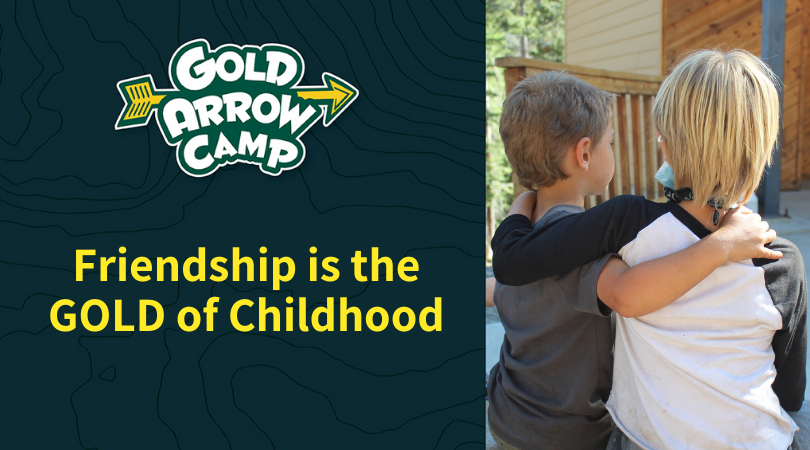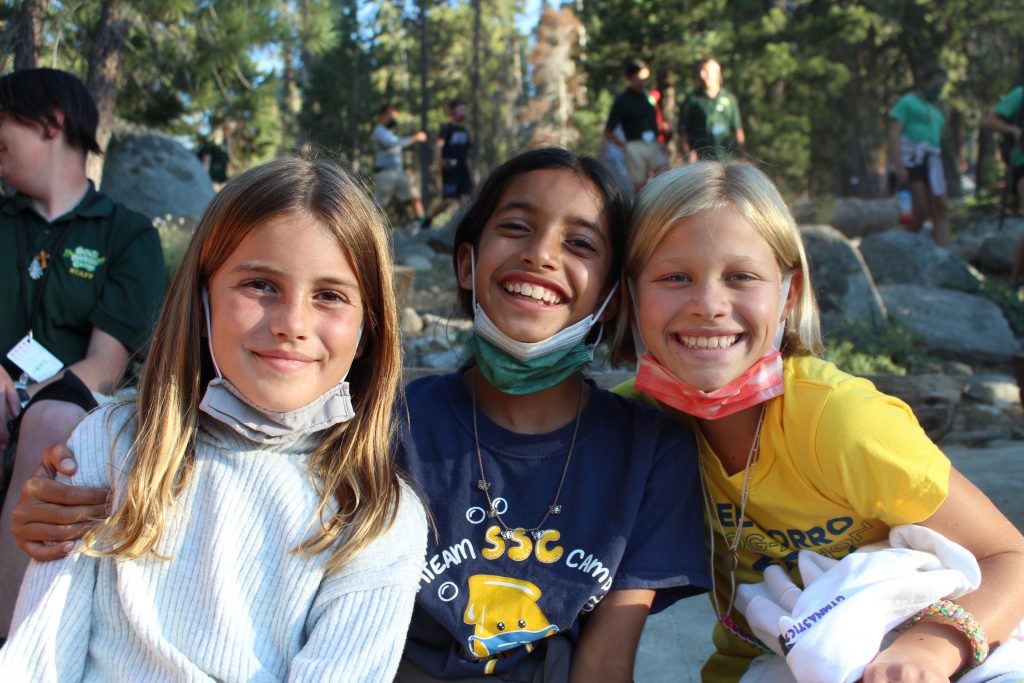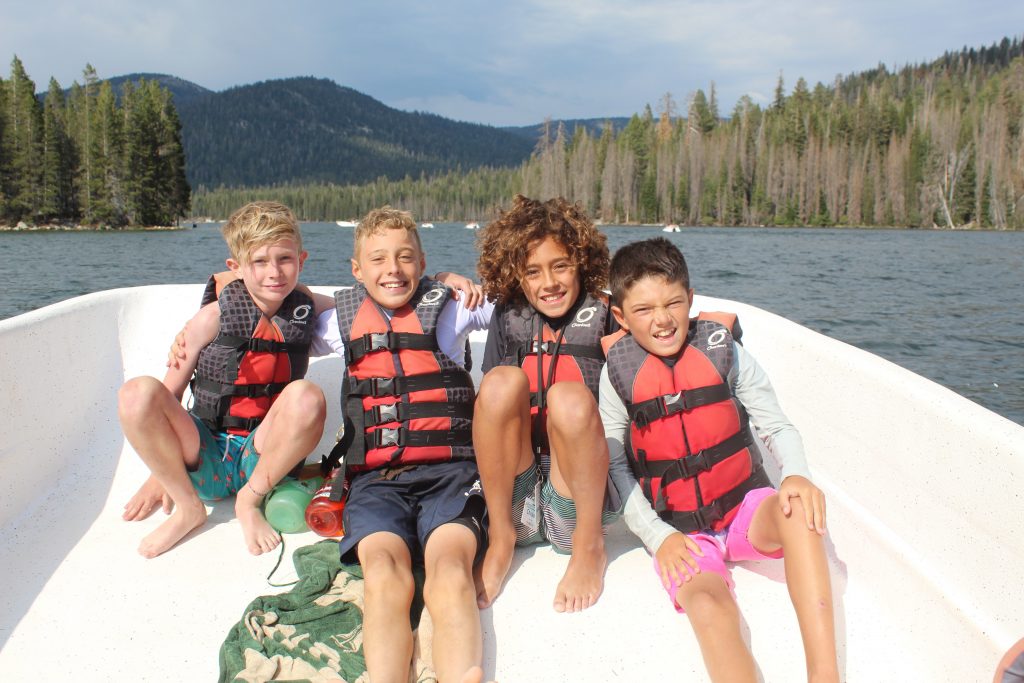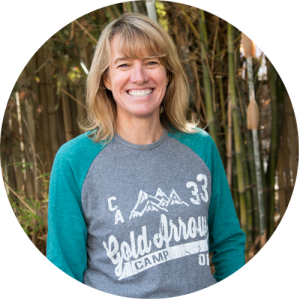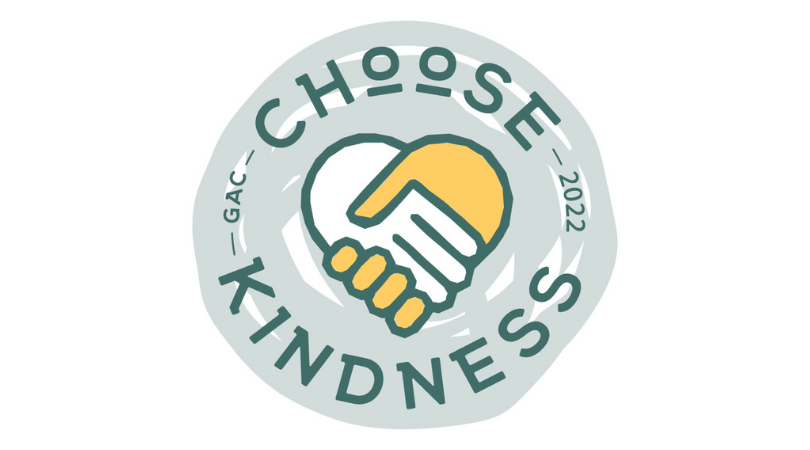
Choose Kindness
We cannot tell the precise moment when a friendship is formed. As in filling a vessel drop by drop, there is at last a drop which makes it run over; so in a series of kindnesses there is at last one which makes the heart run over.
Dr. Samuel Johnson (1709-1784)
Summer, 2022 Theme: Choose Kindness
We selected Choose Kindness as our 2022 Summer Theme because growing our campers’ “kindness muscles” aligns with our mission of equipping campers to thrive despite life’s challenges. Focusing on kindness also helps us meet our goals of building our campers’ friendship skills (Make Friends) and growing their positive character traits (Grow). Learn more about our vision, mission, and goals on our Why GAC? page.
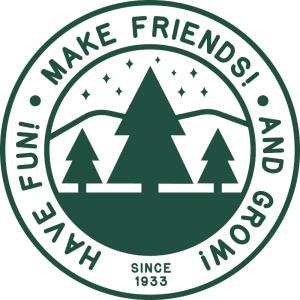 Our kids are growing up in a challenging and divisive time. They are, unfortunately, witnessing a lot of disrespectful and mean behavior. In my book, I wrote about the importance of modeling and growing the trait of kindness in our kids. Here’s an excerpt from the kindness chapter:
Our kids are growing up in a challenging and divisive time. They are, unfortunately, witnessing a lot of disrespectful and mean behavior. In my book, I wrote about the importance of modeling and growing the trait of kindness in our kids. Here’s an excerpt from the kindness chapter:
The example and messages kids get from the media (and their school hallways) often do not promote kindness. Many kids learn that the quickest route to popularity is putting others down or leaving other kids out. In the perceived zero-sum social worlds of middle and high school, one person being put down means you get on a higher rung of the social ladder. Social media posts, political discourse, and cultural norms often promote name-calling and being mean, gossiping, and telling jokes at the expense of others. That’s what our kids are seeing and hearing every day, and that’s also why many kids start to consider it cool to perpetrate mean behaviors. It’s no wonder that while adults are sending hateful messages through tweets, our kids are practicing a similar level of meanness on their own media. Why are adults so shocked to hear about horrendous stories of cyber and in-person bullying when we as adults are modeling that very same behavior? But there is hope for our world, because kids intuitively understand the benefits of kindness and can be taught to be kinder when we take the time to model, talk about, and practice kindness with them.
Camp Secret #8: Make it Cool to Be Kind (Happy Campers: 9 Summer Camp Secrets for Raising Kids Who Become Thriving Adults)
This summer at GAC, we’re putting the spotlight on what it looks and feels like to choose kindness in our interactions with and response to others.
We’ll be growing our campers’ kindness muscles by:
- Talking about and practicing kindness habits like building each other up with positive words (WOWs!) and doing random “GACs of Kindness.”
- Practicing conflict resolution skills and learning how to respond (not react) with kindness and clear boundaries when others upset us with their behaviors or words.
- Focusing on how being kind helps us make friends and form friendships that are stronger and longer lasting.
- Doing projects and activities that involve giving to others.
- Reflecting on how it makes us feel to choose kindness and practice being kind to others. (Spoiler alert: We feel happier when we’re being kind!)
From the moment campers arrive, counselors will be modeling for and encouraging them to incorporate kindness into their daily words, actions, and routines. “GACs of Kindness” will be recognized and praised by counselors, announced at our daily Morning Assemblies, posted on our WOW board, and talked about throughout the session.
Helping others makes people happy. It feels good to share, to give, and to be kind to others. Sometimes in secret, and sometimes in front of others, we’ll be doing kind things for our fellow campers, counselors, support staff, and those outside our camp community this summer.
One of the great things about Gold Arrow Camp is that so many people feel happy when they’re here. We’re committed to equipping our campers with habits and skills that they can practice long after their session at camp.
This summer, we’re focusing on how – regardless of our circumstances and others’ behavior – we can always choose kindness.
Kindness Links/Resources
2022 Gold Arrow Camp Kindness Calendars


